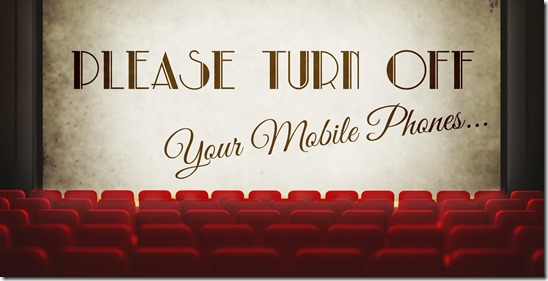Turn Off Your Cell Phones, People!
During MSNBC’s election coverage on Tuesday night, Tom Brokaw’s cell phone alarm started blaring while he was on the air. A seasoned pro, Brokaw played it off nicely, pretending he had received a call from his wife, who had requested that he bring home some milk.
Rudy Giuliani had a similar moment in 2007 during his ill-fated presidential run when he received a call from his wife during a speech to the National Rifle Association. He picked up the phone while speaking before hundreds of people, had a brief conversation with her, and continued his speech.
Giuliani’s stunt earned widespread ridicule from the press; even conservative columnist Kathleen Parker wrote that picking up the call was “emasculating”:
“While jaws began setting in a room of muted chuckles, Rudy played public cuckold to his third wife. Feigning amusement and affection while exchanging sweet nothings, the aspiring president utterly emasculated himself in front of a crowd whose cumulative testosterone level had the Army Corps of Engineers on alert.”
Both of those moments reminded me of a speech I saw television anchor John Stossel deliver several years ago. His phone started ringing while he was speaking to a packed ballroom; he fumbled for his phone, turned it off, and apologized to the audience for the interruption. That moment was highly distracting—it removed me from his speech and turned my attention to his phone—and highly memorable, as it’s the moment I remember best from his speech.
My advice in this post is simple—turn off your phones before a media interview or speech—but there’s one less intuitive piece of advice I’d offer. It’s not enough to put your phones on vibrate. While the audience may not hear your device ring when it’s on silent mode, you will—and the vibration itself is often enough to distract you from your comments.
Writing in The New York Times, author Martin Lindstrom explains:
“So are our smartphones addictive, medically speaking? Some psychologists suggest that using our iPhones and BlackBerrys may tap into the same associative learning pathways in the brain that make other compulsive behaviors — like gambling — so addictive. As with addiction to drugs or cigarettes or food, the chemical driver of this process is the feel-good neurotransmitter dopamine.
Earlier this year, I carried out an fMRI experiment to find out whether iPhones were really, truly addictive, no less so than alcohol, cocaine, shopping or video games. In conjunction with the San Diego-based firm MindSign Neuromarketing, I enlisted eight men and eight women between the ages of 18 and 25. Our 16 subjects were exposed separately to audio and to video of a ringing and vibrating iPhone.
In each instance, the results showed activation in both the audio and visual cortices of the subjects’ brains. In other words, when they were exposed to the video, our subjects’ brains didn’t just see the vibrating iPhone, they ‘heard’ it, too; and when they were exposed to the audio, they also ‘saw’ it.”
Some studies show that the momentary buzz in your pocket removes you from your central task, if even for a brief moment. And when that buzz occurs, I wouldn’t be surprised to observe speakers suddenly increasing their amount of verbal filler and hesitations; since their brains are momentarily otherwise occupied, it would make sense to see their speech briefly interrupted.
Turn off your cell phones, people.
Don’t miss a thing! Click here to instantly join our mailing list and receive the best of the blog.




Great advice! Another point equally worthy of consideration – you want to turn it completely off to avoid introducing the dreaded “Blackberry buzz” that comes from your phone, not just when it rings but when it gets a text, pulls in an email or auto-refreshes your Facebook. This radio frequency interference is totally distracting – if you have your phone on silent in your suit pocket, it may be unseen but right next to the lapel microphone or wireless transmitter.
Tom Brokaw has a secure job. The press needs Rudy from time to time. Me? or my client? Completely replaceable – ruin their broadcast with a phone call, a flinchy vibrate reflex, or electronic noise and you will NOT be called back. Bad strategy if you’re trying to be on a producer’s short list for quality, go-to commentary.